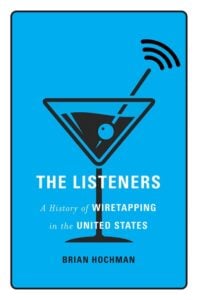Virginia Police Routinely Use Secret GPS Pings To Track People’s Cell Phones
The nonprofit online news site Virginia Mercury investigated their state police departments’ “real-time location warrants,” which are “addressed to telephone companies, ordering them to regularly ping a customers’ phone for its GPS location and share the results with police.” Public records requests submitted to a sampling of 18 police departments around the state found officers used the technique to conduct more than 7,000 days worth of surveillance in 2020. Court records show the tracking efforts spanned cases ranging from high-profile murders to minor larcenies…. Seven departments responded that they did not have any relevant billing records, indicating they don’t use the technique. Only one of the departments surveyed, Alexandria, indicated it had an internal policy governing how their officers use cellphone tracking, but a copy of the document provided by the city was entirely redacted….
Drug investigations accounted for more than 60 percent of the search warrants taken out in the two jurisdictions. Larcenies were the second most frequent category. Major crimes like murders, rapes and abductions made up a fraction of the tracking requests, accounting for just under 25 of the nearly 400 warrants filed in the jurisdictions that year.
America’s Supreme Court “ruled that warrantless cellphone tracking is unconstitutional back in 2012,” the article points out — but in practice those warrants aren’t hard to get. “Officers simply have to attest in an affidavit that they have probable cause that the tracking data is ‘relevant to a crime that is being committed or has been committed’…. There’s been limited public discussion or awareness of the kinds of tracking warrants the judiciary is approving.” “I don’t think people know that their cell phones can be converted to tracking devices by police with no notice,” said Steve Benjamin, a criminal defense lawyer in Richmond who said he’s recently noticed an uptick in cases in which officers employed the technique. “And the reality of modern life is everyone has their phone on them during the day and on their nightstand at night. … It’s as if the police tagged them with a chip under their skin, and people have no idea how easily this is accomplished.”
The case for these phone-tracking warrants?
- The executive director of the Virginia Association of Chiefs of Police tells the site that physical surveillance ofen requires too many resources — and that cellphone tracking is safer. “It may be considered an intrusive way of gathering data on someone, but it’s certainly less dangerous than physical tracking.”
- A spokesperson for the Chesterfield County police department [responsible for 64% of the state’s tracking] argued that “We exist to preserve human life and protect the vulnerable, and we will use all lawful tools at our disposal to do so.” And they added that such “continued robust enforcement efforts” were a part of the reason that the county’s still-rising number of fatal drug overdoses had not risen more.
The site also obtained bills from four major US cellphone carriers, and reported how much they were charging police for providing their cellphone-tracking services:
- “T-Mobile charged $30 per day, which comes to $900 per month of tracking.”
- “AT&T charged a monthly service fee of $100 and an additional $25 per day the service is utilized, which comes to $850 per 30 days of tracking…”
- “Verizon calls the service ‘periodic location updates,’ charging $5 per day on top of a monthly service fee of $100, which comes to $200 per 30 days of tracking.”
- “Sprint offered the cheapest prices to report locations back to law enforcement, charging a flat fee of $100 per month.”

 Wiretapping is nearly as old as electronic communications. Telegraph operators intercepted enemy messages during the Civil War. Law enforcement agencies were listening to private telephone calls as early as 1895. Communications firms have assisted government eavesdropping programs since the early twentieth century-and they have spied on their own customers too. Such breaches of privacy once provoked outrage, but today most Americans have resigned themselves to constant electronic monitoring. How did we get from there to here?
Wiretapping is nearly as old as electronic communications. Telegraph operators intercepted enemy messages during the Civil War. Law enforcement agencies were listening to private telephone calls as early as 1895. Communications firms have assisted government eavesdropping programs since the early twentieth century-and they have spied on their own customers too. Such breaches of privacy once provoked outrage, but today most Americans have resigned themselves to constant electronic monitoring. How did we get from there to here?